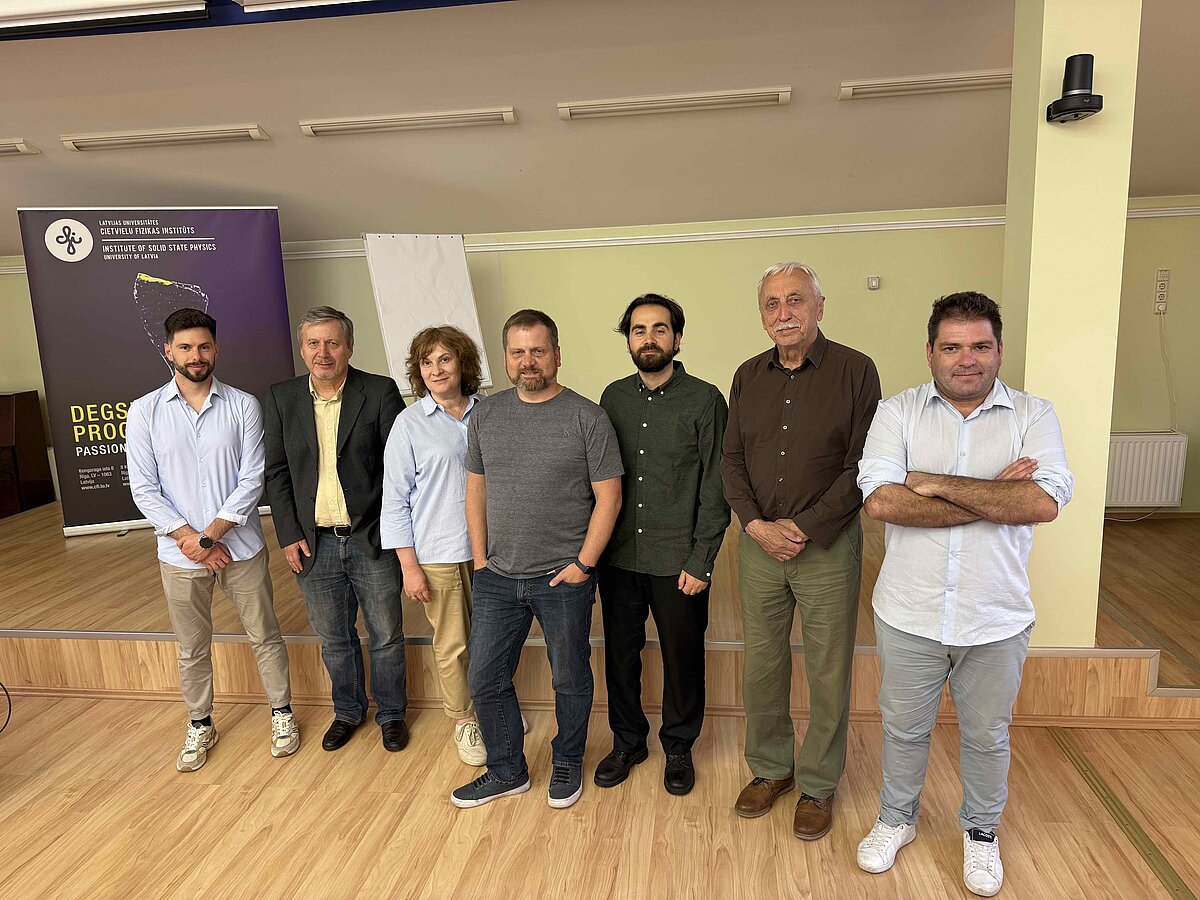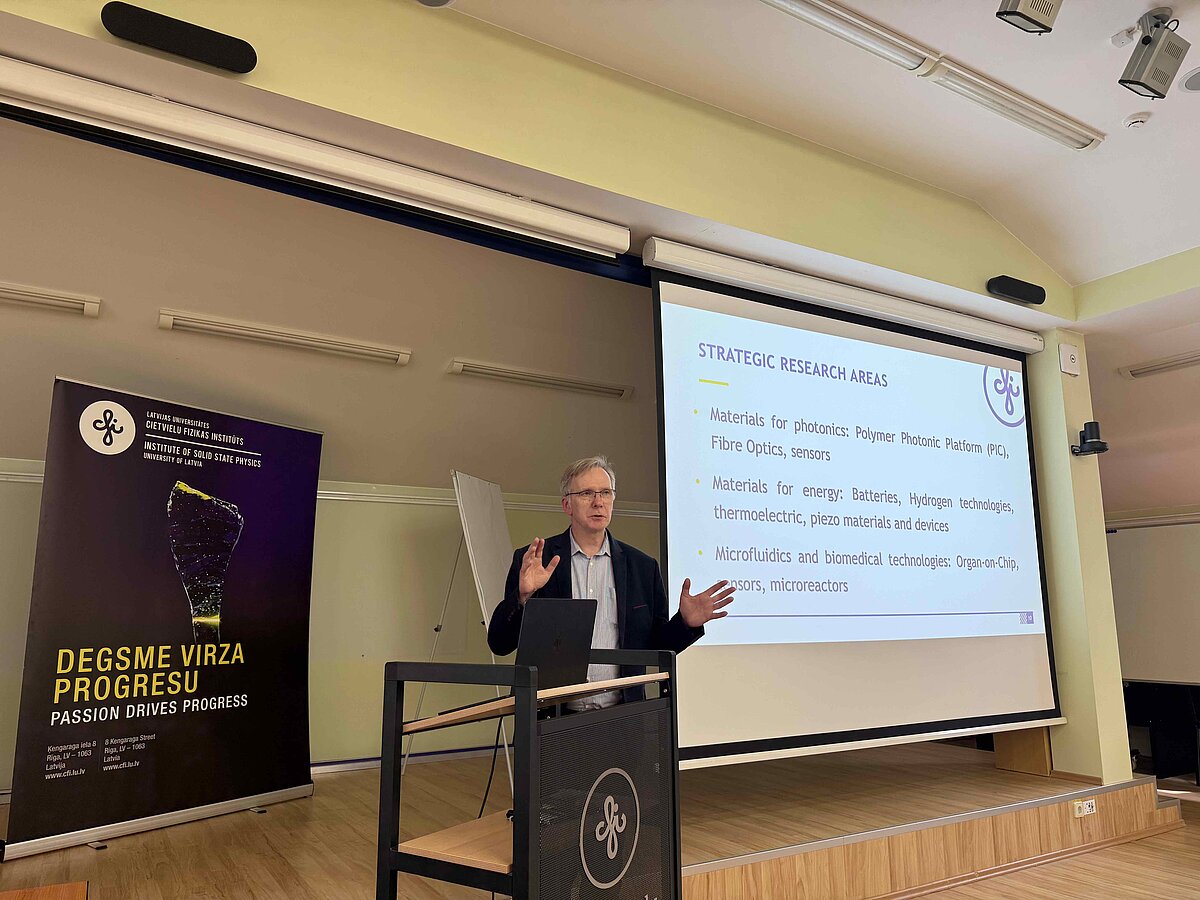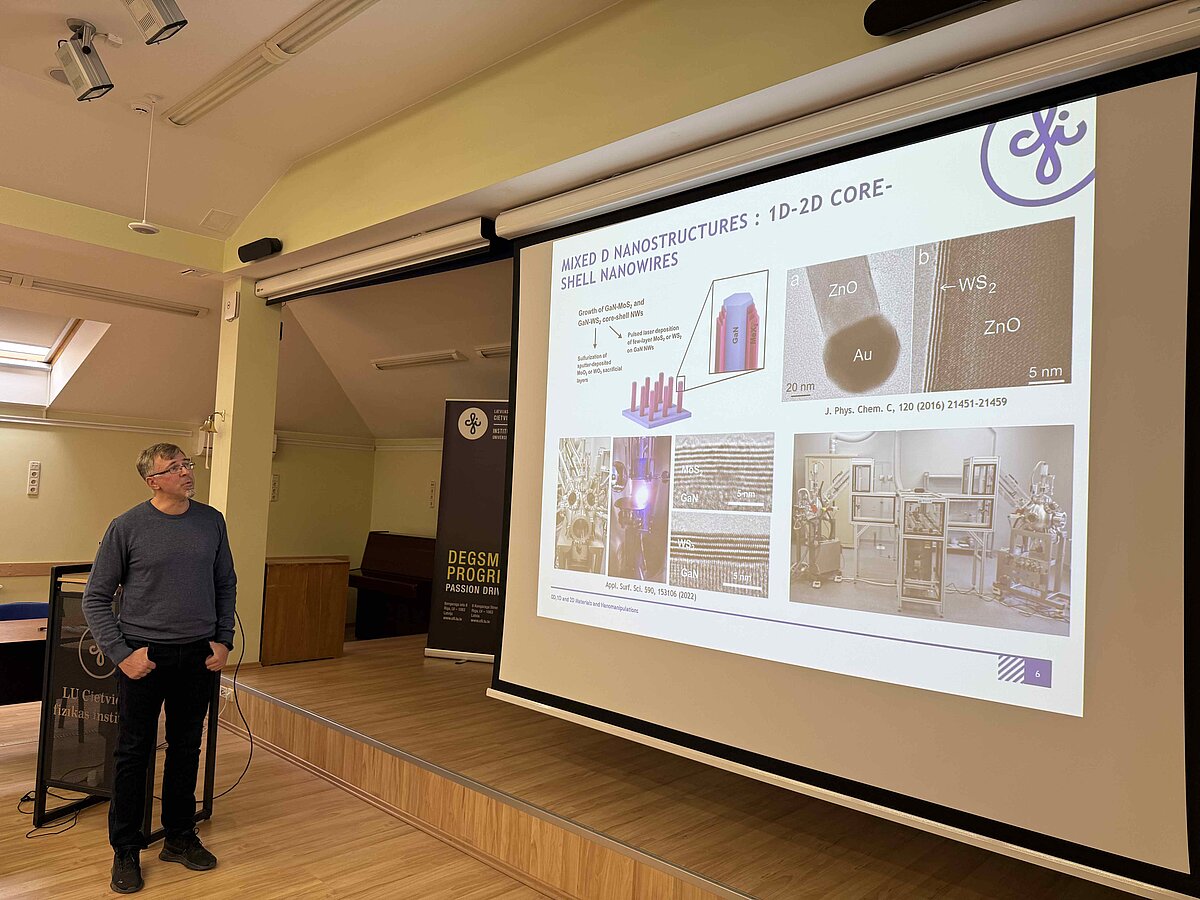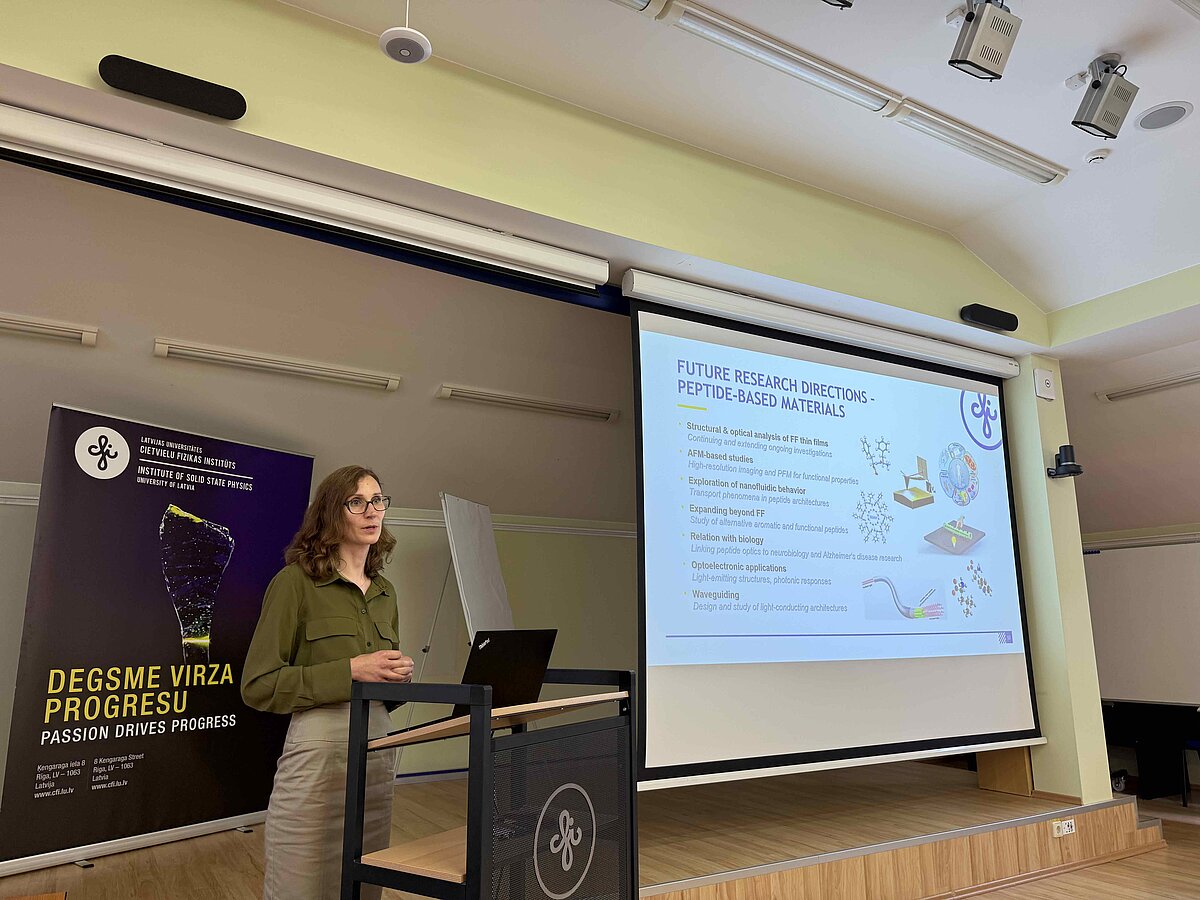
Earlier this month, on 5–6 June, 2025, the Institute of Solid State Physics, University of Latvia (ISSP UL), hosted a two-day event within the framework of the EU-funded Piezo2D project. The event was organized with the support of the FeLow-D team, led by ERA Chair holder Dr. Andrei Kholkin. It brought together international experts to discuss emerging directions in piezoelectricity in 2D materials and the broader potential of low-dimensional ferroelectrics in electronic and biomedical applications.
The first day of the event was held in an open format and featured presentations from multiple ISSP UL laboratories and invited partners. Dr. Gints Kučinskis presented the developments in the Energy Materials Laboratory, highlighting ISSP UL’s contributions to next-generation materials for energy storage and harvesting. Dr. Boriss Polyakov, a leading researcher and head of the Additive Manufacturing Group at the Thin Films Laboratory, introduced the lab’s core activities and presented insights from the ongoing SWEB (Smart Windows for Zero Energy Buildings) project.
Participants also engaged in discussions on research sustainability, capacity building, and the importance of collaboration across academia and industry in supporting the lab-to-market transition of novel materials. A cleanroom tour offered attendees a closer look at ISSP UL’s advanced fabrication and characterization facilities.
The second day continued with the official Mid-Term Meeting of the Piezo2D consortium, where partners from across Europe, including University of Aveiro, IOP, UZHNU, BCMaterials, DTU, Graphene Energy, and InanoEnergy reviewed scientific progress and outlined future directions. Topics ranged from advancements in 2D ferroelectric materials to joint strategies for dissemination and commercialization.
The event exemplified the mission of both Piezo2D and FeLow-D: to accelerate innovation in functional materials and strengthen the role of emerging research centers such as ISSP UL within the European Research Area. The FeLow-D initiative, supported under Horizon Europe, is enabling ISSP UL to build sustainable scientific leadership through structural transformation, research excellence, and industry-focused collaboration.


